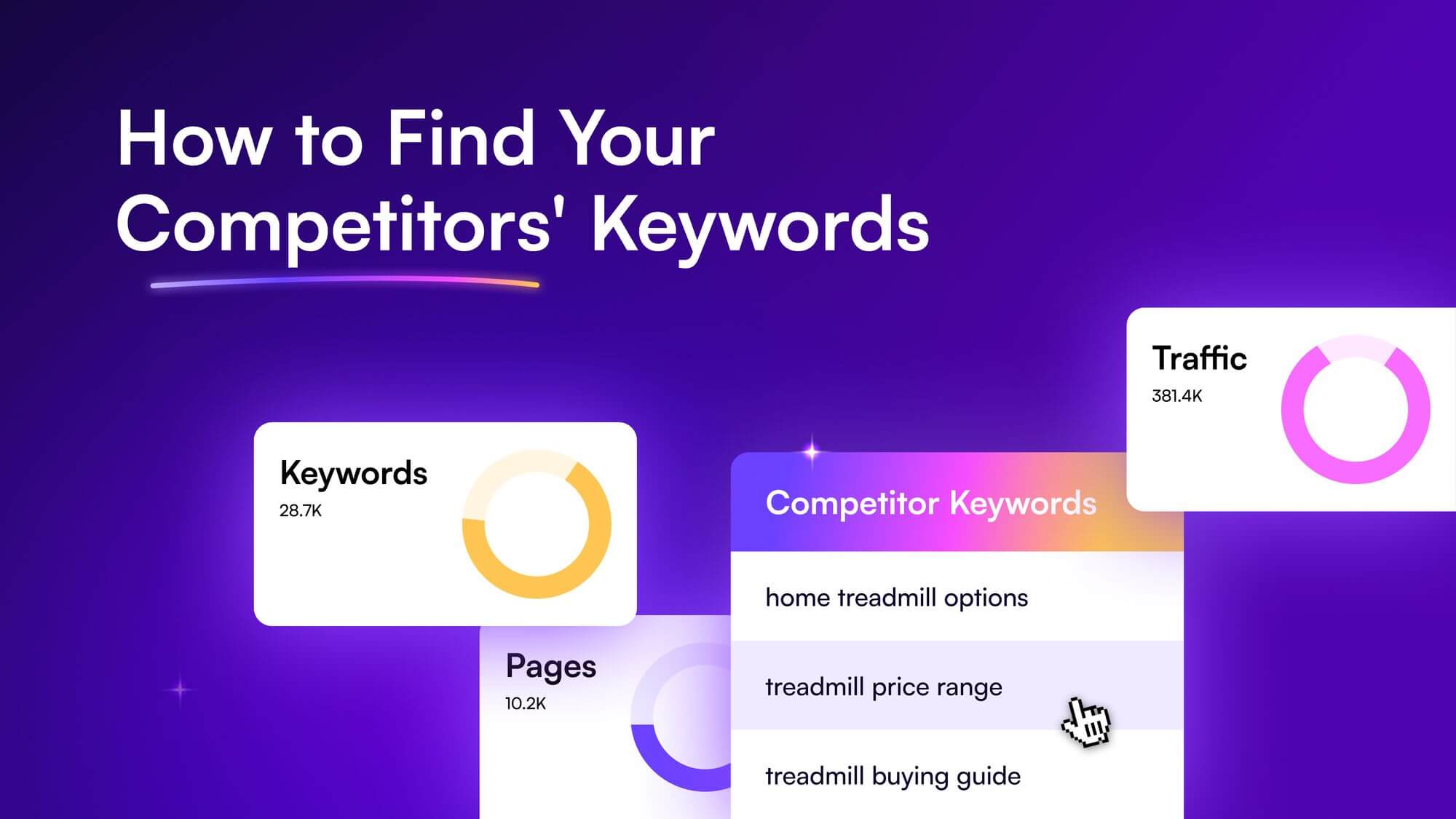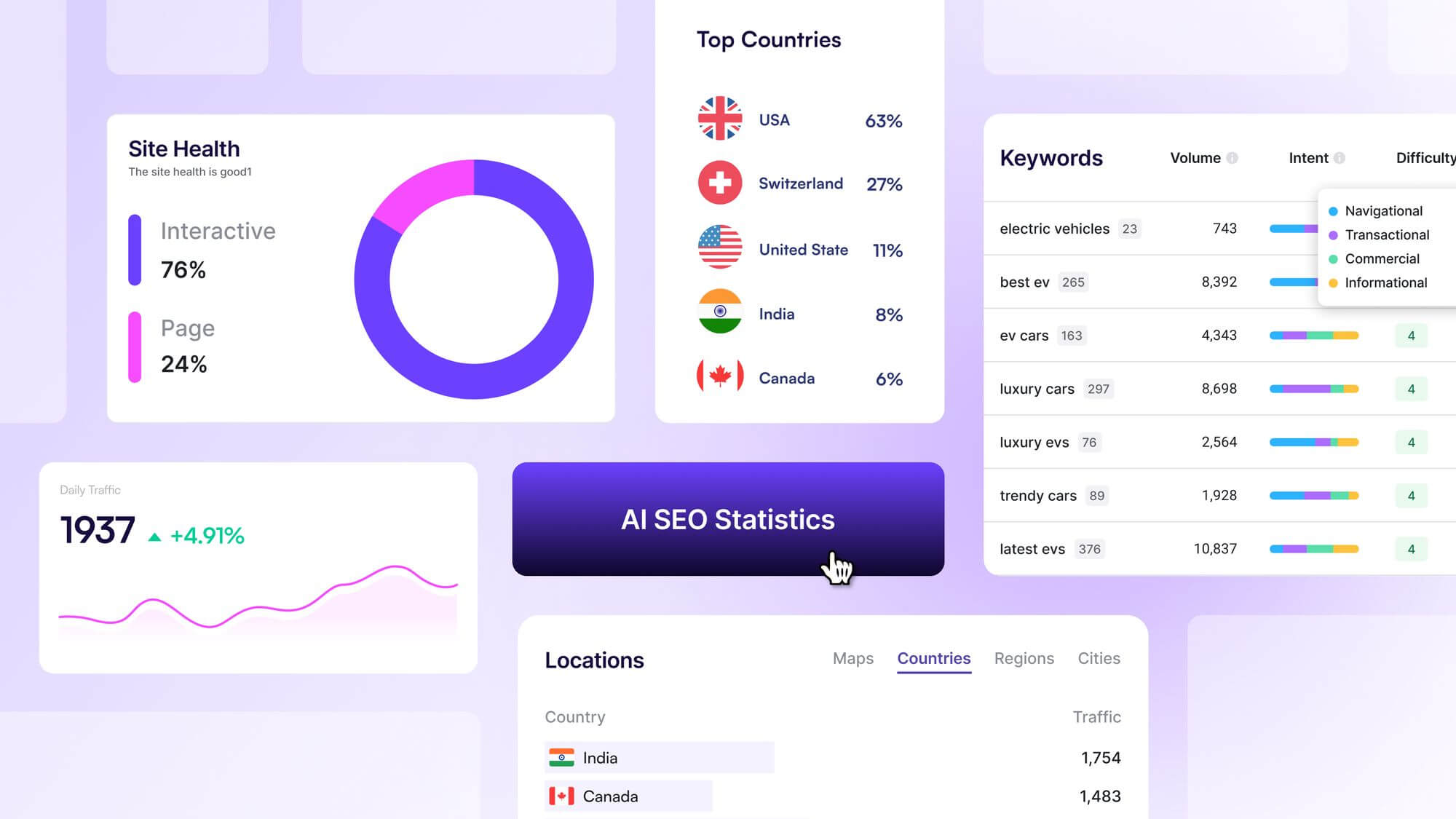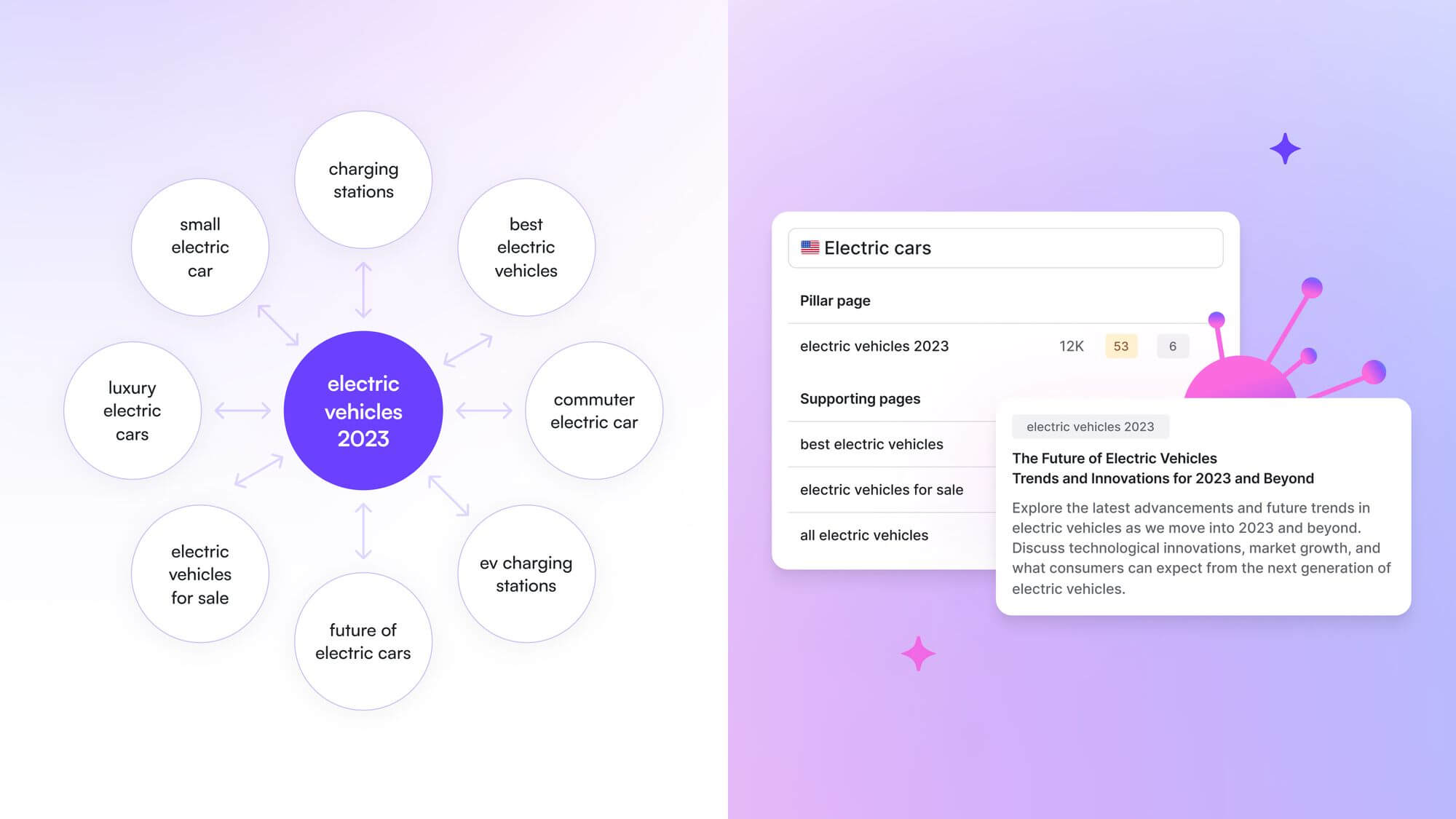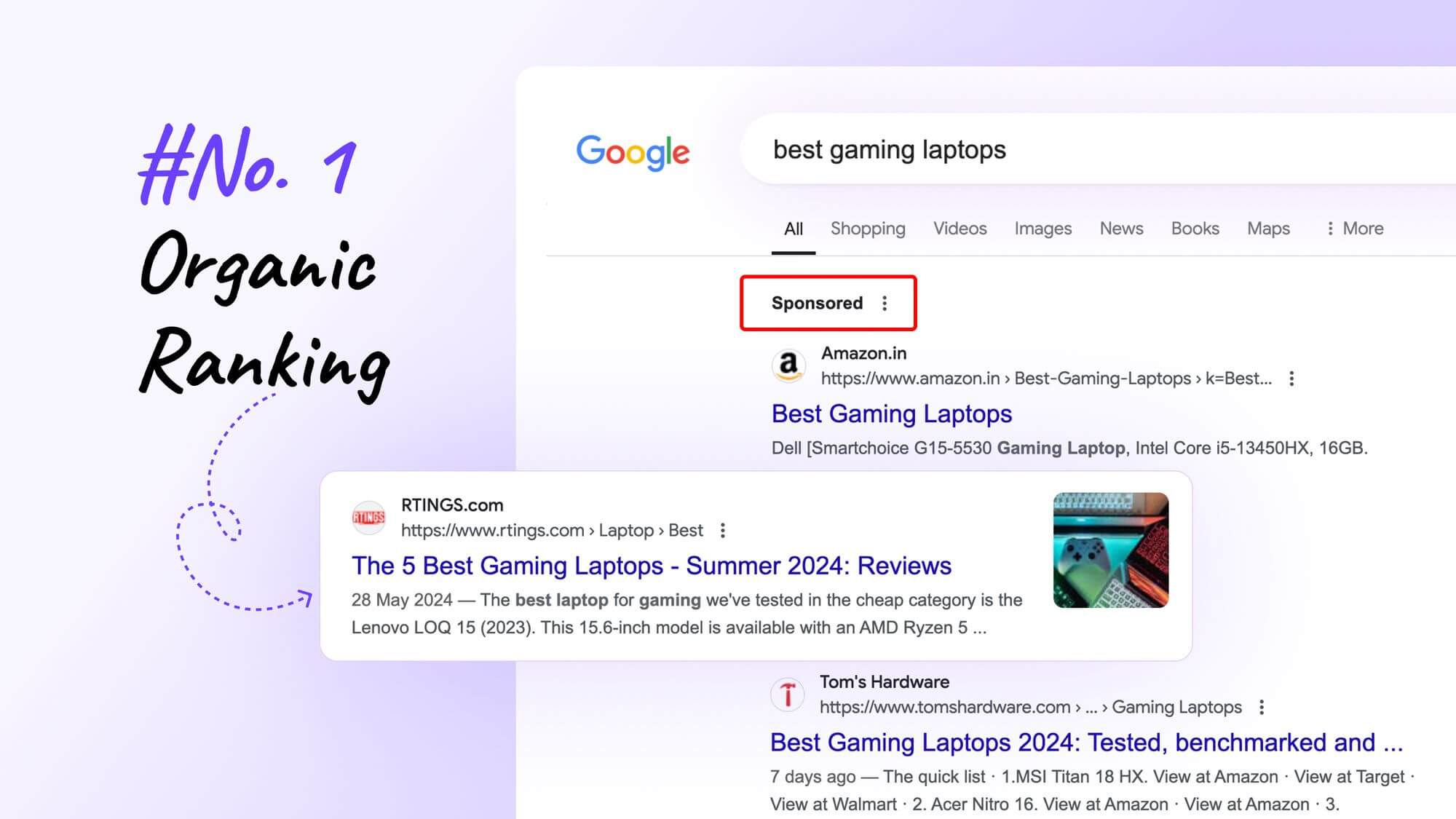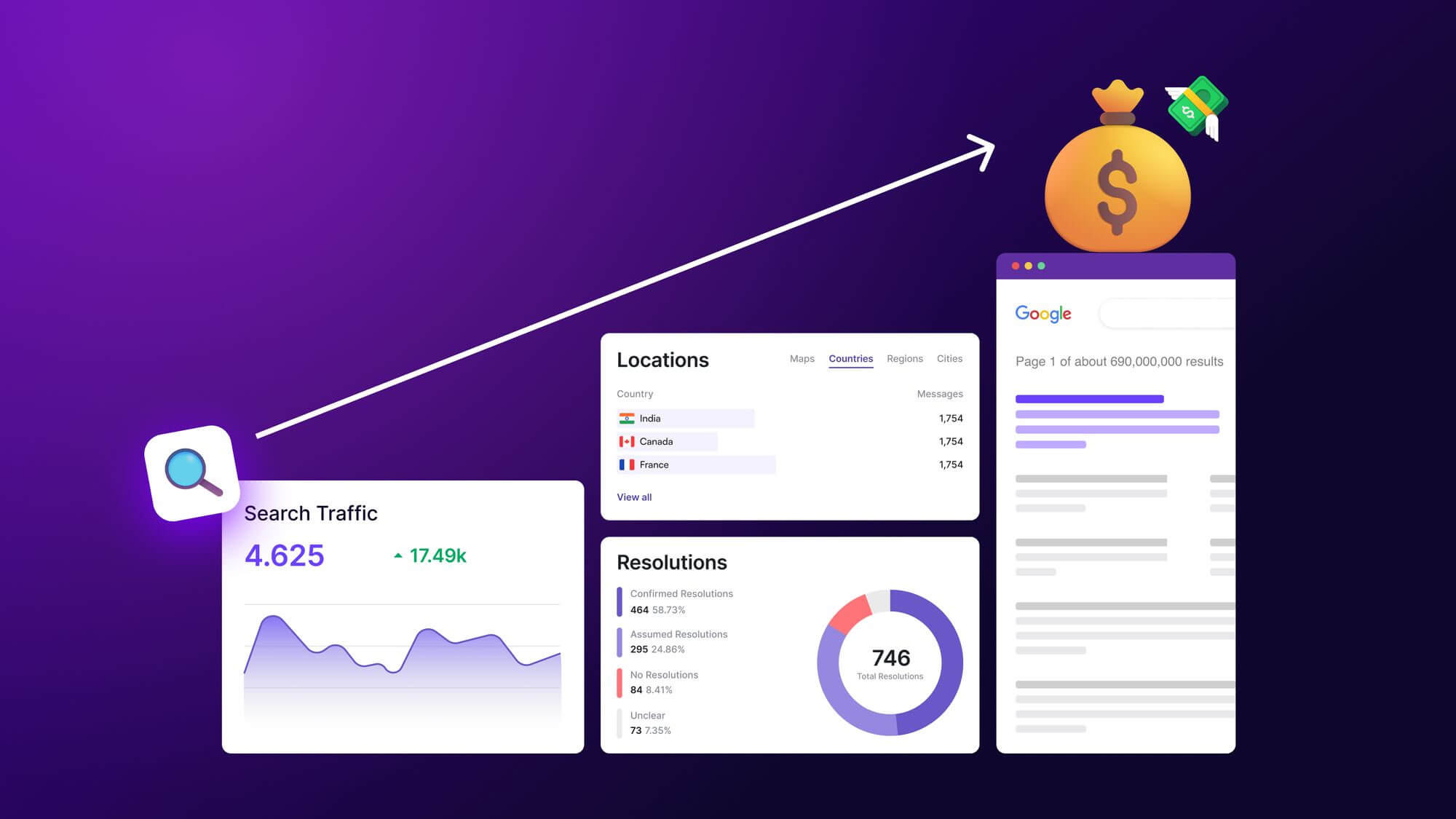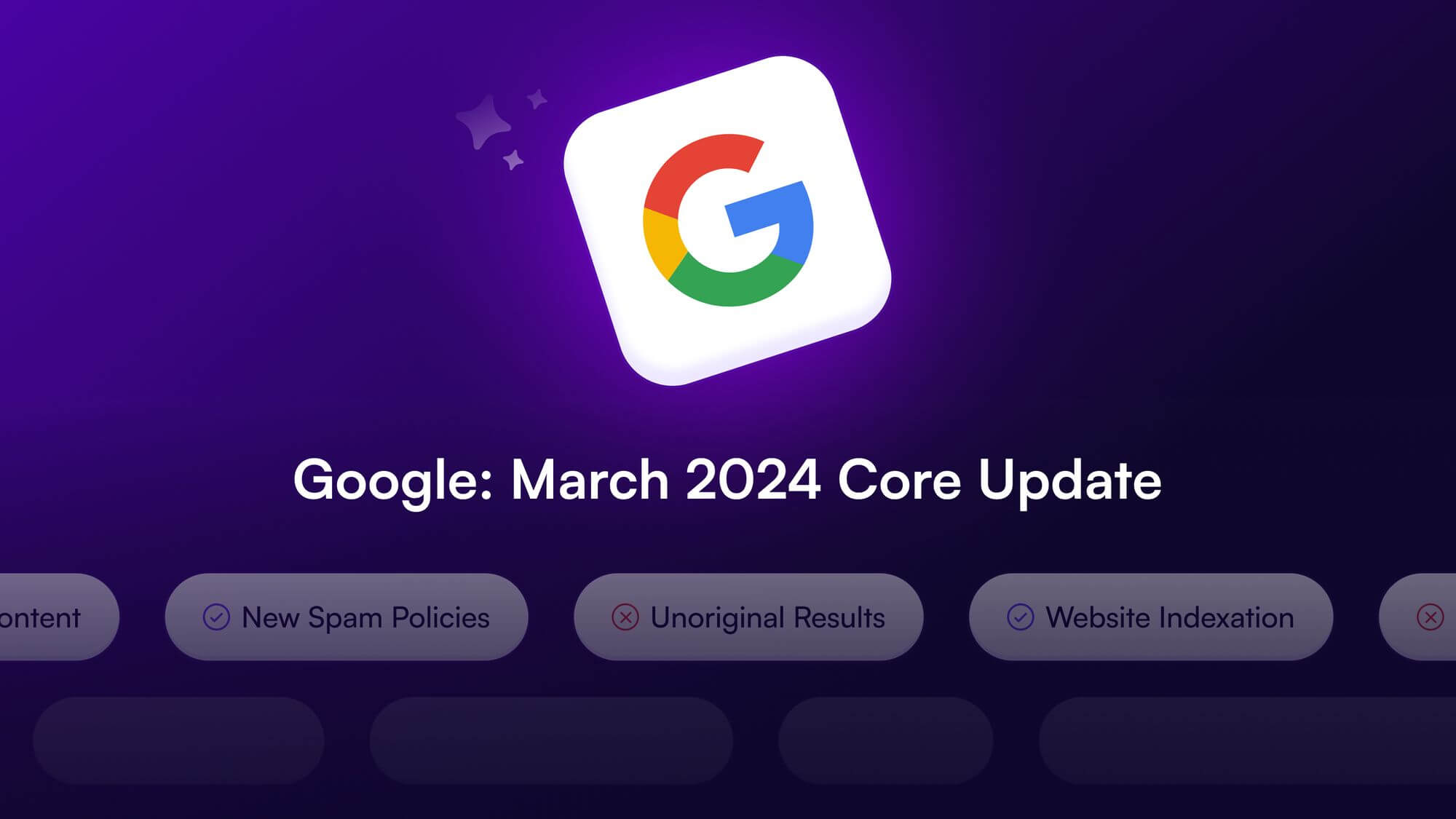While finding less competitive keywords to secure organic rankings is a common keyword strategy, it may not be the most effective. Then what is? Leveraging your competitors’ keywords.
Let me tell you why.
By publishing helpful content around competitors’ keywords, you compete against their existing customer base and market share. This helps you position yourself as an alternative option and drive more traffic and signups, giving you a competitive edge.
So yes, a content strategy filled with competitors’ keywords is more effective in attracting ideal customers. But how to find keywords used by competitors?
You’re in the right place. This post lists nine practical ways to research competitor keywords, with step-by-step processes and best practices. You can immediately apply them to get the most out of your competitors’ content strategy.
But first…
What are competitors’ keywords, and why are they important?
Competitors’ keywords are search terms for which your competitors are already ranking and driving traffic. These keywords are perfect to include in your content strategy because they allow you to create better content and outrank your competitors to capture a portion of their traffic and conversions.
Suppose you sell an online course hosting platform and want to rank for the keyword “how to sell online courses.”
Then, LearnWorlds and Hostinger are your competitors, and “how to sell online courses” is a competitor keyword. It’s perfect for targeting because if you outrank both sites, you could get a portion of their audience.
But being able to steal your competitors’ traffic isn’t the only benefit. Besides that, identifying their moves and benchmarking performance, there are many more reasons why competitors’ keywords are essential:
1. Build an effective content strategy
Researching competitors’ keywords is a stepping stone for businesses starting their content efforts. When you don’t know where to begin, find keywords or ideas that are successful for your competitors to define your content strategy. Thorough competitor analysis also reveals content gaps and untapped markets to drive more traffic.
2. Identify market trends
Keeping track of competitors’ keywords allows you to identify trends and interests in your market. You can also review their content performance to fine-tune your marketing messages and get maximum visibility for these trends.
3. Optimize PPC campaigns
By finding the keywords your competitors are bidding on in their pay-per-click (PPC) campaigns, you can make informed decisions about your own ad spending to reduce costs and increase ROI. Of course, you bid on their high-value keywords and optimize your ad campaigns to get a share of their audience.
Also Read: How to Write Ad Copy for Facebook, Google, and LinkedIn?
Now that you know why you should research competitors’ keywords, I will show you the strategies.
How to find competitors’ keywords to improve your SEO
Before searching competitors’ keywords, you need to identify your top competitors. Chances are, you would already know who they are. If not, a quick Google search or customer survey are also excellent ways to find your competitors.
Once you have 3 to 4 competitors, you’re ready for the next steps:
1. Use Writesonic’s SEO Checker and Optimizer to skip manual research and identify top competitors’ keywords in one click.
Let me start with the easiest method: using Writesonic to extract keywords from top-ranking posts. Sonic Editor is an intelligent SEO tool that uses AI to analyze SERPs and suggest optimization strategies to increase your chances of ranking.
Here’s how it works.
If you haven’t already, create a free Writesonic account and choose Sonic Editor on your dashboard.
On Sonic Editor, choose SEO Optimizer. Here, you can review your content’s SEO score and optimize it (manually or using AI) to improve its performance.
After entering the primary keyword and starting your analysis, you’ll get an SEO score and keywords to optimize. These are your competitors’ keywords, long-tail keywords, and common competitor terms extracted from top-ranking articles.
Next to each keyword is a number count, which indicates how many times you should use it to outrank your competitors.
Easy, right?
But what if you could simplify it even more? Well, you can. Use the “Improve SEO” button to let AI include these keywords naturally in your content.
Another option is the “Keywords” section on Sonic Editor. After adding your primary keyword, Sonic Editor recommends more keywords with the same difficulty and monthly volume as top-ranking posts.
So you see, with Writesonic, you don’t have to spend hours doing competitor analysis. Sonic Editor extracts keywords from top-performing posts and even optimizes the post for you.
Also Read: Insider tips from makers on how to use Writesonic SEO Checker and Optimizer
Now, let’s look at some manual methods to find competitors’ keywords.
2. Use Semrush’s Keyword Gap tool to find untapped ideas
Semrush’s Keyword Gap tool identifies the content gap between you and your competitor. It gives you a list of keywords your competitor ranks for, but you don’t. However, you need the pro plan to access all the features of the Keyword Gap tool.
On your Semrush dashboard, go to Keyword Gap. Enter your and your competitor’s domain, respectively.
Scroll down to the keywords section:
- “Missing” and “Untapped” show keywords your competitor ranks for, but you don’t.
- “Weak” shows keywords your competitor holds a strong position for, but you don’t.
You can also use Semrush’s Organic Research section to find competitors’ keywords driving organic traffic. Filter them based on position, keyword difficulty, monthly volume, and specific phrases to refine your search.
3. Use WordStream’s free keyword tool to identify keywords from specific URLs.
If you want to find all the keywords a specific post ranks for, use WordStream’s free keyword research tool. Copy/paste the URL you want to analyze, and WordStream will generate a list of ranking keywords.
4. Use Google’s site colon operator to find your competitors’ ranking posts.
Google is an invaluable resource for tracking your competitors’ activities. It can also serve as a free keyword research tool when needed.
Use the “site:website URL” Google operator to find the indexed post on that website. For example, if I want to extract the ranking posts of Convertkit, here’s the query I’ll follow:
site:convertkit.com
Google identified 17,700 indexed URLs of ConvertKit. If I want to find ranking posts around a specific topic, I’ll write the topic next to the search operator query.
For a specific phrase to appear in the title or content, write it in double inverted commas (“”) next to the operator. Use the “Tools” section to filter content based on publishing time.
You can review the titles to identify and collect new topics in one place. This will give you many ideas and seed keywords for your SEO strategy.
5. Use Ubersuggest’s Keyword tool to find all the keywords your competitor ranks for.
Although Ubersuggest is a premium tool, you get a 7-day free trial and three free searches daily to explore all features. On your dashboard, go to Keywords by Traffic. Then, enter the competitor URL, and UberSuggest will list keywords that bring them the most traffic.
Filter keywords by volume, SEO difficulty, country, and specific words to refine your search. You can also export them to CSV. Another tool you can use is Moz’s Link Explorer to extract all the ranking keywords of your competitors.
6. Install the Mozbar extension to identify keywords based on your competitor’s domain authority (DA.)
Top-ranking domains aren’t always your competitors — these are established market players with high domain authority. Competing against such sites is like making your efforts go to waste, especially if you’re a new website with low domain authority.
In that case, the best strategy is to slowly increase your DA by identifying ranking keywords of competitors that have similar (or slightly higher) DA. Install the free Mozbar extension to view the DA, search volume, backlinks, etc., of ranking domains.
When you find a website with the correct DA, perform an in-depth competitor analysis to identify its keywords using the methods mentioned above.
7. Use competitor’s sitemap and Chatsonic to extract keywords
First, you need to find your competitor’s sitemap. Use the site colon method with “sitemap” next to it. If the sitemap is publicly available, you’ll be able to get it as the first result.
Now, get all the posts’ URLs. Once you have them, paste them on Chatsonic and ask it to find keywords. It’ll list all the keywords used in the content of the URLs. Since Chatsonic is a powerful AI model, it can easily read and analyze links to extract the requested information.
Most AI-powered tools like ChatGPT and Claud AI can’t access links with their free plans. But Chatsonic can. And the best part? Chatsonic is free to try!
Also Read: What is Chatsonic, and How To Use It?
8. Use Google Ads Manager to identify keywords your competitors are bidding on.
If you don’t want to invest in paid keyword research tools, use the keyword tool on Google Ads Manager. Google Ads Manager lets you find out what keywords your competitors target in paid and organic search.
On your Google Ads account, go to “Tools and Settings” > “Keyword Planner” > “Discover new keywords.” Now, choose “Start with a website.”
You can choose a specific page or extract keywords from the entire site. You’ll see keywords organized based on monthly search volume, competition, and bid value.
9. Use SpyFu for an in-depth competitor analysis
Want to conduct an in-depth analysis of your competitors? How about extracting all of the best keyword opportunities? Then, choosing SpyFu is the right option.
Although the tool is not free, you can subscribe for $39 a month to access tools like keyword research, backlink analysis, ad placement tracking, and domain comparisons.
The basic SEO research allows you to find all the ranking keywords of a specific URL:
Ranking history shows how the URL performed over a specific period. It shows total keywords, rank changes, volume, and monthly clicks.
Remember that not all competitors’ keywords are worth putting effort into. For example, you might find an easy-to-target keyword, but what’s the guarantee your competitor drives traffic from it? How can you be sure the keyword is bringing organic clicks?
Using SpyFu, you can identify whether a keyword is worth targeting. Ranking history shows the number of clicks the competitor generates monthly from different keywords.
3 practical strategies to use competitor keywords effectively
Just like not everything that glitters is gold, not every competitor keyword you find is worth targeting. And not every website is worth calling your competitor. Follow these strategies to find the right competitors and keywords:
1. Choose competitors with similar (or slightly higher) domain authority
Established industry websites are not your competitors, especially if you’ve just launched your website. Search engines favor them because they have created content and built authority for years. So, there’s no way you can outrank these market giants.
Instead, target competitors at your level to make sure you set realistic benchmarks. Confirm the competitor’s DA is similar (or slightly higher) to yours and focus on their top-ranking keywords to make sure they bring traffic to your site.
2. Validate keywords before using them
You’ll find that most of the keywords your competitors rank for are worthless. This is because nobody can control what keywords they rank for. All we can do is optimize content for the best keywords and leave it to search engines.
But don’t optimize for all competitor keywords just because they rank for them. Analyze each keyword manually for relevance, search intent, and monthly volume before using it. Or use Writesonic’s SEO Checker and Optimizer, which automatically filters unwanted keywords and recommends only the relevant ones.
3. Review competitor’s content and identify gaps to add more to your content
Once you’ve identified the right keywords, don’t create content similar to your competitor’s. Take time to analyze the top-ranking posts to find content gaps and brainstorm unique POVs that could improve your content compared to the existing articles.
By delivering fresh, differentiated content that fills those gaps, you’ll have a better chance of ranking well and providing value to your audience.
Don’t forget to optimize your content for search engines
As much as search engines value uniqueness and helpfulness, they still rely on on-page SEO parameters to understand the context of the content and rank it appropriately.
That’s where Writesonic is a perfect all-in-one solution. It takes care of SEO optimization and automatically identifies competitors’ keywords.
I save 3+ hours in each project just by using Writesonic to optimize my work. But don’t just take my work for it. Try Writesonic for free and see for yourself!

